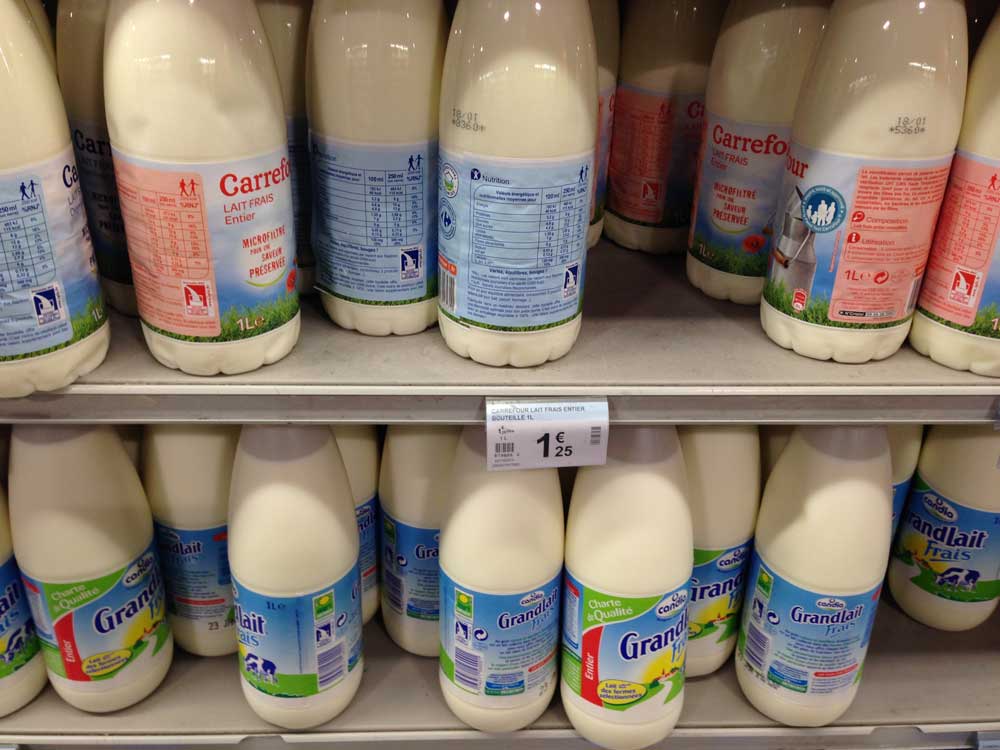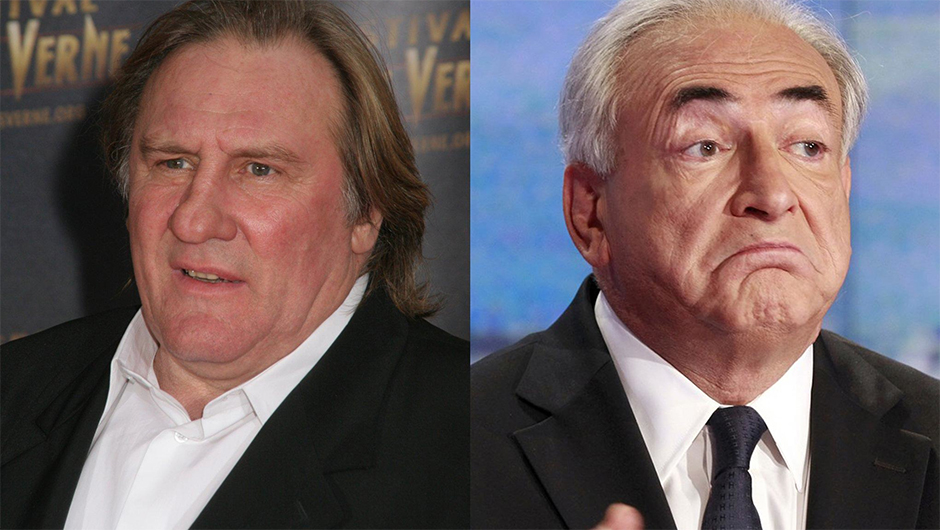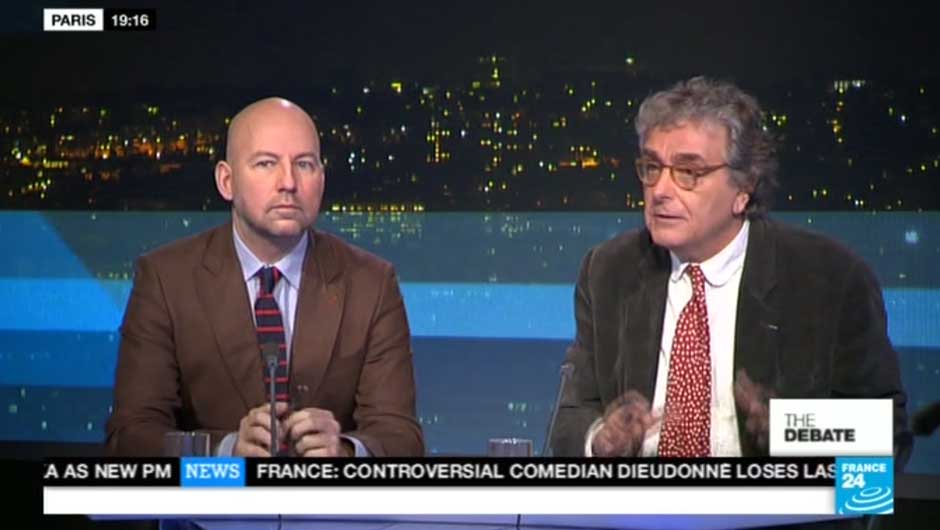In the article ‘The Fall of France’, published by Newsweek yesterday, journalist Janine di Giovanni gives away the tone right in the first sentence: ‘It’s a stretch’. And I agree. Since everything that follows is, indeed, a little bit stretched.
Like Janine, I’ve been a foreign journalist living in Paris for over a decade, so I sympathize with her sufferings. And like Janine, I regularly indulge in some French bashing. In that respect, I’ve become as Parisian as the Parisians I so loathe—and so love. However, not everything is rotten in the State of France.
The article is written from the perspective of the fancy 6th arrondissement, probably one of Europe’s classiest neighborhoods, and the equivalent of New York’s 10065 Zip Code. Overlooking the Luxembourg Garden, di Giovanni wrote that half a liter of milk costs $4. To be sure, this morning I checked the current milk rates in a local store. One liter of milk in a supermarket in the mixed 13th district costs €1.25, or $1.70 at today’s rate, not even a quarter of what it costs according to di Giovanni (see photo). Which means that either di Giovanni never buys milk, or is getting taken for a ride by her bank on the exchange rate she pays when withdrawing euros in the City of Lights. Although the Luxembourg Garden is only a fifteen-minute walk from my apartment, clearly she and I live in totally different worlds.
Elite
Di Giovanni is lucky to send her child to one of the country’s most elitist institutions: the Ecole Alsacienne. As is her right of course. But this school and a handful of other almost always lead to a place at one of the Grandes Ecoles di Giovanni hates so much. Across the street from the school of Janine’s son, there’s an impressive red brick building. It’s the Art History Faculty of the Sorbonne University, where I had the pleasure to get a Master’s Degree. Because the tuition fee was so low, I don’t remember what I paid, but I’m quite sure it was less than $200 a year (or 25 liters of di Giovanni’s milk). I admit the Sorbonne’s buildings were a little neglected, but I got some world-class courses, not to mention the occasional ‘wows’ and other profound expressions of admiration over dinner with my Ivy League educated friends. (Tuition is actually a little bit more expensive now, but not much).
About a decade ago I was studying in di Giovanni ’hood, I used to drink my coffee in a bar which also functioned as the hangout for all the well-dressed parents who just brought their kids to school and were now sipping their crème while discussing the way they would spend their fortune the rest of the day. One morning in November 2005, the month of the intense riots in the Parisian banlieues (suburbs), I eavesdropped on a table next to me, with four famous French women: a former top model, a fashion designer and two actresses. While viewers of news channels around the world had the impression the whole country was going up in flames, they were debating on the question ‘Will we go to Prada Saint-Germain, or to Prada Saint-Honoré today?’ Verbatim. I was so stunned by the different worldview of these women, that I never forgot this phrase.
Taxes
Another topic that di Giovanni got wrong is taxes. Not many French people—actually probably none—pay 70 percent income tax. In spite of popular belief, the income tax in France is not extremely high compared to other EU-member states. Last year, I paid a staggering 26 percent, which is exactly half (!) of what I would have paid had I stayed in the country where I was born, The Netherlands.
Di Giovanni has a point in mentioning the many smart people who left France (actually, Newsweek’s owner Etienne Uzac, is one of them). But to cite Total’s CEO Christophe de Margerie as a ‘business visionary’ is quite ironic. In 2011, he co-signed a letter asking the government to raise the taxes for rich people like himself. And although the French are not very keen on what they call entrepreneurs, many businessmen and women stay here. Take Xavier Niel for instance, or Mercedes Erra or David Guetta. And if there are no ‘Richard Bransons of France’, maybe Janine can explain why in 2012 France was the 3rd biggest receiver of Foreign Direct Investment in the world, after the US and China. This good score is partly due to the generous tax credits for research and development, but probably also because of the great education, excellent infrastructure and, probably above all, the food.
I agree with di Giovanni that there’s a lot of room for improvement in this Fallen Country. I mean, their cheese stinks (well, it smells anyway) and their cars rust. It is true that the French are whining a lot and are risk-averse. It certainly would not hurt them to be a little bit more open-minded. Then there is of course the annoying fact that all foreigners here generalize too much. Actually, everybody who really knows France hates it. That’s why they love it. And I’m one of them. And whether you like it or not, Janine, the only way to make me leave the country will be in a (subsidized) coffin. But that’s a stretch.
This post is also available in:
![]() Nederlands
Nederlands ![]() Français
Français ![]() Español
Español








Bedankt Mr. de Vries. Julien
Graag gedaan, Mr. Rivet.
Thanks, I enjoyed that.
Thanks, I enjoyed this! Also you should look back at some of Janine di Giovanni’s earlier articles, because this is not the first time she has invented “facts.” She wrote one article saying that French banks don’t allow overdrafts (really!!!) http://www.thedailybeast.com/articles/2008/12/11/oh-to-be-french-and-smug.html . She put an anecdote in there about a fur sale at Lanvin, guess she never imagined that someone would check the facts, but they did! http://franceblogcom.blogspot.fr/2008/12/janine-di-giovanni-embelishes-her-story.html In another one she claimed to have “sources at the Elysee” who talked to her about Rachida Dati’s private life. Excuse me, I am laughing hysterically.